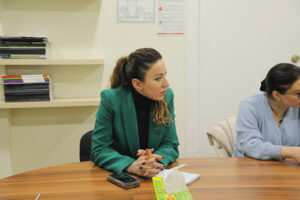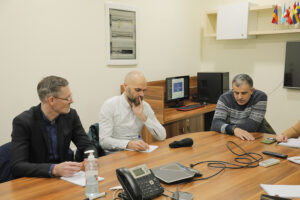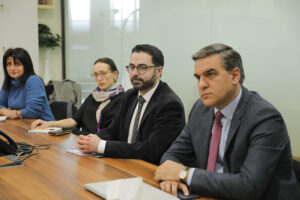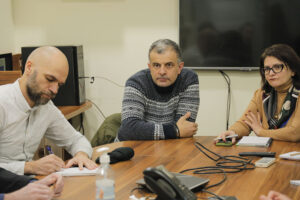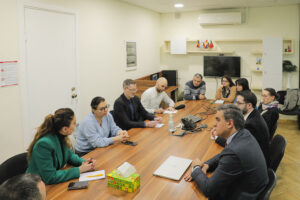
MA HRSJ hosts a discussion on human rights research in academia and CSOs
On 15 February, the American University of Armenia (AUA) MA Human Rights and Social Justice Program hosted a discussion with the researchers from Raoul Wallenberg Institute of Human Rights and Humanitarian Law (RWI) Dr. David Eile, Senior Program Officer, and Dr. Morten Koch Anderson, Deputy Director of Research at RWI. The discussion was devoted to human rights research within academia and Civil society organizations.
The session was divided into two parts for targeting the academia and CSOs separately. With the active engagement and participation of the distinguished faculty from AUA, and also some leading experts and policymakers representing various NGOs and civil society organizations, such as Public Policy Institute, Protection of Rights without Borders (PRWB), Human Rights Research Center (HRRC) Armenia, etc., the RWI researchers discussed how they can support an academic institution through establishing a network, a research hub or centre in order to figure out how they might shape the support as specifically targeting academia. They primarily focused on the key issues and knowledge gaps to strengthen a human rights research agenda within academia. Also, many possible incentives were discussed during the session, needed for academics for deeper engagement in HR research such as publications, access to international networks, possibility to participate and organize international conferences, and so on.
The discussion participants were also brainstorming over creating a working niche for academics across disciplines from regional universities to be involved in research, thus, attempting to find any relevant regional academic networks that could be linked to the potential research hub in Armenia.
Then another part of the discussion was on how academia and CSOs could find collaboration paths. The policymakers and practitioners shared their successful practices of collaborative research that could support the development of the future hub. Furthermore, they were thinking of what would facilitate increased use of research for policy or advocacy purposes, thus aiming at its further enhancement.

